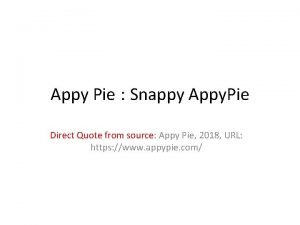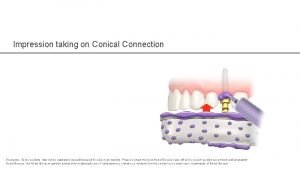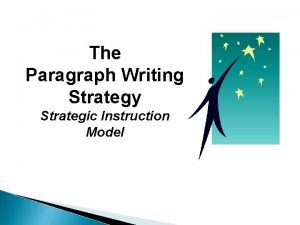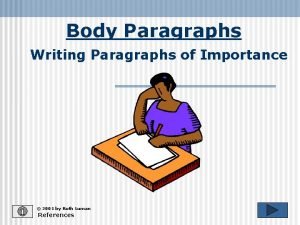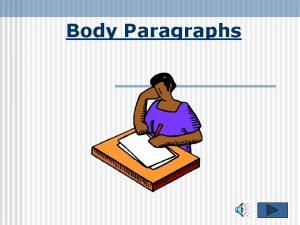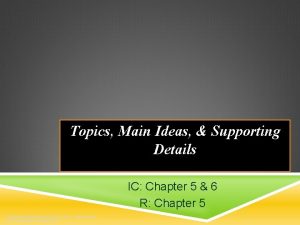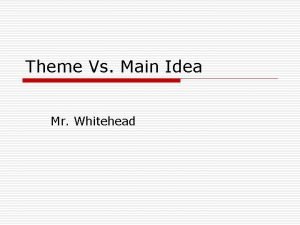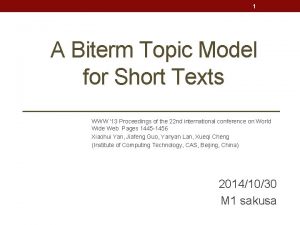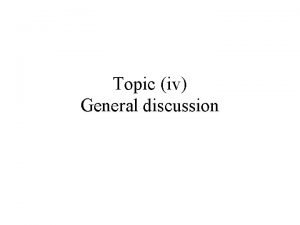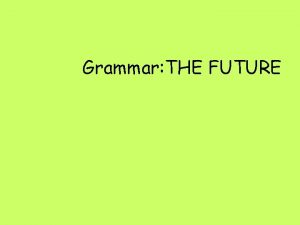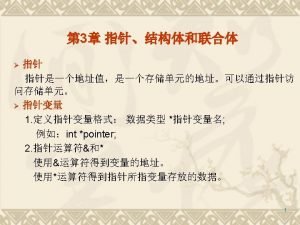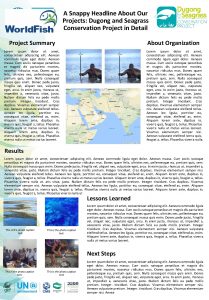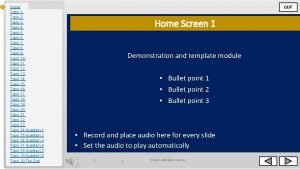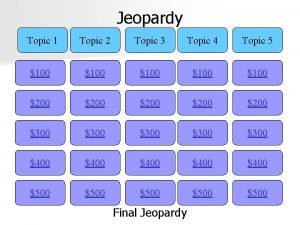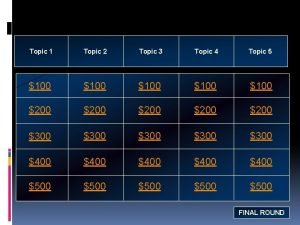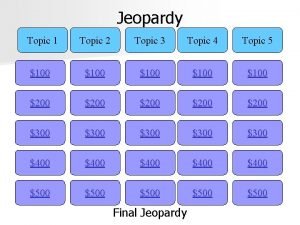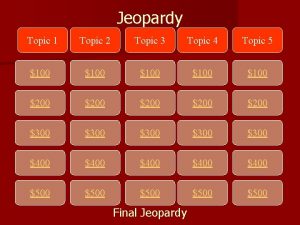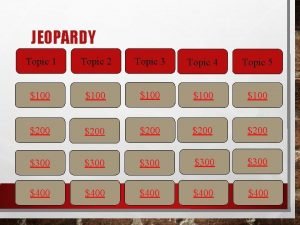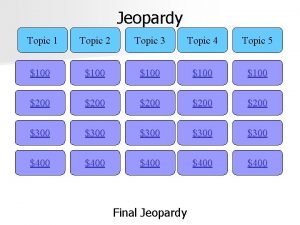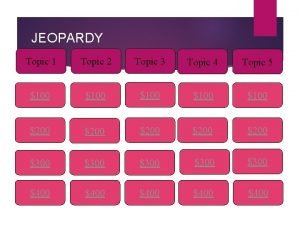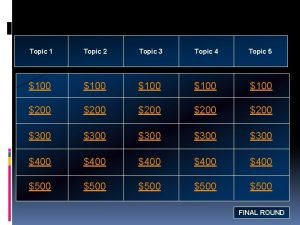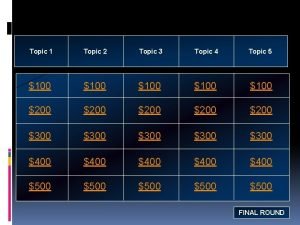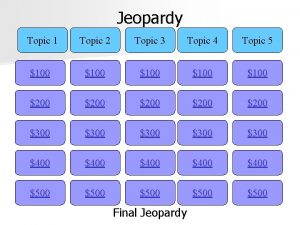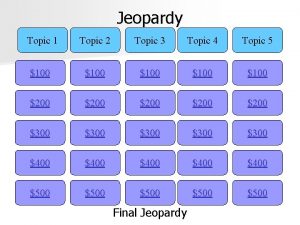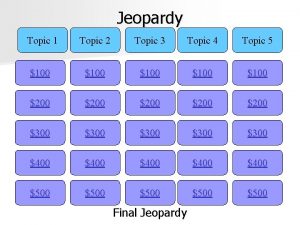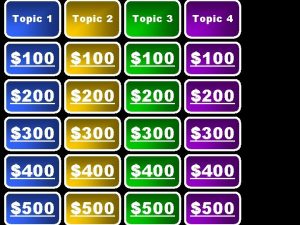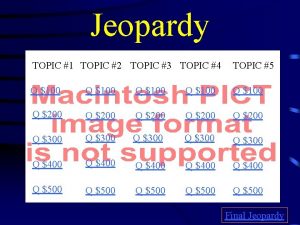SHORT AND SNAPPY DESCRIPTION OF THE MAIN TOPIC























- Slides: 23

SHORT AND SNAPPY DESCRIPTION OF THE MAIN TOPIC THAT NOT MORE THAN FIFTEEN WORDS Name: Your Name (MDXXXXXX/PDXXXXXX 1 st Semester) Supervisor/s: Dr. Xxx, Assoc. Prof. Ir. Dr. Yyy, Prof. Dr. Zzz

Short and Snappy Description of the Main Topic That Not More Than Fifteen Words Contents • • Introduction – Research background, problem statement, aim and objectives, scope, significance of the study Literature Review – Theoretical framework, literature A, literature B, literature C Methodology – Research design, site investigation and data collection, sampling, laboratory setup, instrumentation, data analysis Expected Contribution and Action Planning

Introduction • Definitions • Background of study • General phenomena • Existing problems and solutions • Existing methods and applications

Problem Statement • Focus problem under investigation (with citations) • Present/discuss of 5 Ws – what, where, when, why, who (with citations) • Discuss available/applicable solutions (with citations) • Research questions can be embedded here (if any)

Aim and Objectives of the Study The aim of this study is to ? ? ? • Objectives of this study are: 1. To identify/determine/? 2. To develop/validate/? 3. To assess/recommend/propose/? 4. To establish/?

Scope of the Study • Selected samples/area/groups/respondents • Assumptions (e. g. , homogeneous, heterogeneous) • Limitations (explain what is considered and what is not considered, limit of the modeling, etc. ) • Initial condition/boundary condition

Significance of the Study 1. New insight? 2. Causes and effects? 3. Emphasis of new findings in fundamental? 4. Major specific contribution? 5. New frameworks/guidelines/So. P/methods?

Literature Review • Based on the title and scope, identify theoretical behind each important item/issue • Each supporting argument through a critical review must be supported with citation/s • Provide tables/charts/diagrams to present theoretical and research gaps • Synchronize each literature with the title, RQs, ROs and scope

Example of Existing Studies Author Type of study Bastien and Athienitis (2010) Application Model Type of Model Country Analysis of the Transient solar radiation thermal response of a solarium/ greenhouse Hottel clear sky model (1976) Empirical model Montrea, Canada Jakhrani et al. (2013) Incident solar radiation on tilted surfaces Liu and Jordan (1963) Empirical Klucher (1979) model Reindl et al. , (1990 a and 1990 b) HDKR Model (2006) Kuching, Sarawak, Malaysia Muzathik et al. (2010) Hourly global Solar energy solar radiation design estimates on a horizontal plane Jain (1984, 1988) model, Empirical Baig et al. (1991) model, model a new approach to the Jain and Baig models, Kaplanis (2006) model, and Collares-Pereira and Rabl (1979) model Terengganu, Malaysia Renewable energy resources

Flow Chart of Research Methodology • An open-ended flow chart that show the process of research methodology • How a good flow chart look like?

Models and Modeling Methods • Analytical model • Physical model • Numerical model

Physical Instrument • Very useful in determining the ambient air condition in any room. • Have large LCD readout which makes reading both temperature and relative humidity values easy. Thermo-hygrometer

Fluid Flow Measurement 3. 2 cm Tensiometer body tubes placed straight vertically in the upper position 10. 0 cm 3. 5 cm Five channels Em 50 ECH 2 O logger (Decagon Devices, Inc. ) 5 TE VWC, temperature and electrical conductivity sensor (Decagon Devices, Inc. ) Eight cannels data logger (Skye Data Hog 2)

Photographic Method and Image Analysis Technique (IAT) Photographic equipment - Rolera XR CCD camera, Computar TV Zoom lens and three IR filters (500 nm, 760 nm and 970 nm 10 nm) Image processing software – Image-Pro Plus (IPP, Version 7)

Photographic Setup Dark room Black curtain CCD camera with band-pass filters 500 Watt floodlights 2 -D sand chamber Tensiometers and 5 TE sensors at the back wall Support base Arrangement of experimental equipment in a dark room for image acquisition. The CCD camera was connected to a computer and image acquisition was controlled by the IPP software (Kamaruddin et al. , 2012).

Simulation Program/Software • Show the details of simulation program/software (e. g. , diagram/chart/table) that will be used in the study

Simulation and Validation • Place a flowchart that show the process of simulation and validation

Example of Simulation Results • Place a figure and the source.

Data Analysis • Demonstrate how to conduct your data analysis.

Expected Contribution • Contribution A • Contribution B • Contribution C

Research Planning

References • List down all the references

Thank You …
 Tall + short h
Tall + short h Snappy appy pie
Snappy appy pie Snappy abutment
Snappy abutment Clincher in writing
Clincher in writing Narrow
Narrow Topic sentence
Topic sentence Topic sentence examples paragraph
Topic sentence examples paragraph What is the controlling idea?
What is the controlling idea? Topic, main idea and supporting details examples
Topic, main idea and supporting details examples Supporting sentences examples
Supporting sentences examples How to write an effective paragraph
How to write an effective paragraph What was the main topic of the lincolndouglas debates?
What was the main topic of the lincolndouglas debates? Definition main idea
Definition main idea Theme vs topic vs main idea
Theme vs topic vs main idea Stated main idea and implied main idea
Stated main idea and implied main idea A biterm topic model for short texts
A biterm topic model for short texts Topic of discussion for short
Topic of discussion for short What is ashort story
What is ashort story Present expressing future
Present expressing future Void main int main
Void main int main Hình ảnh bộ gõ cơ thể búng tay
Hình ảnh bộ gõ cơ thể búng tay Lp html
Lp html Bổ thể
Bổ thể Tỉ lệ cơ thể trẻ em
Tỉ lệ cơ thể trẻ em

